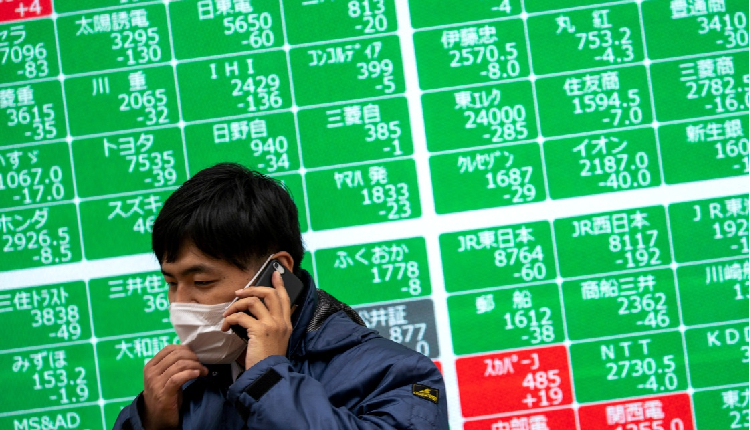Japanese stocks surged at the opening on Tuesday, leading a rebound in Asian share markets following reassuring statements from central bank officials that eased investor concerns.
The Nikkei index rose over 10 per cent to surpass 34,500, recovering from its previous close of 31,458 on Monday, which had marked a 12.4 per cent drop, the largest since the 1987 Black Monday crash.
This recovery extended to other Asian markets, with MSCI’s broadest index of Asia-Pacific shares outside Japan rising 2.0 per cent.
The optimism also spilled over to the US, where S&P 500 futures climbed 1.5 per cent, Nasdaq futures gained two per cent, and EuroStoxx 50 futures advanced 1.24 per cent.
These gains followed a steep sell-off on Monday, driven by concerns about a potential US recession.
Yields on 10-year Treasury notes retreated to 3.84 per cent after touching a low of 3.667 per cent.
Federal Reserve officials, such as San Francisco President Mary Daly, attempted to calm markets by emphasising the importance of preventing a labour market downturn and signalling a potential openness to interest rate cuts.
Matt Simpson, a senior market analyst at City Index in Brisbane, described the Nikkei’s rally as a “decent retracement” attributed to Daly’s comments and a stronger-than-expected ISM services report.
Currencies also reversed some of Monday’s sharp moves, with the dollar edging up against the yen to 145.64 after plunging 1.5 per cent the previous day.
The yen’s recent strength was linked to investors unwinding carry trades. The dollar pared its gains against the safe-haven Swiss franc, holding at 0.8546.
In the commodities market, gold failed to benefit from safe-haven demand as investors focused on profit-taking. Spot gold stood at $2,409 an ounce.
Oil prices, on the other hand, rebounded after news of an attack on a US military base in Iraq raised geopolitical concerns. US West Texas Intermediate crude futures climbed 1.6 per cent to $74.12 per barrel.
Attribution: Reuters


